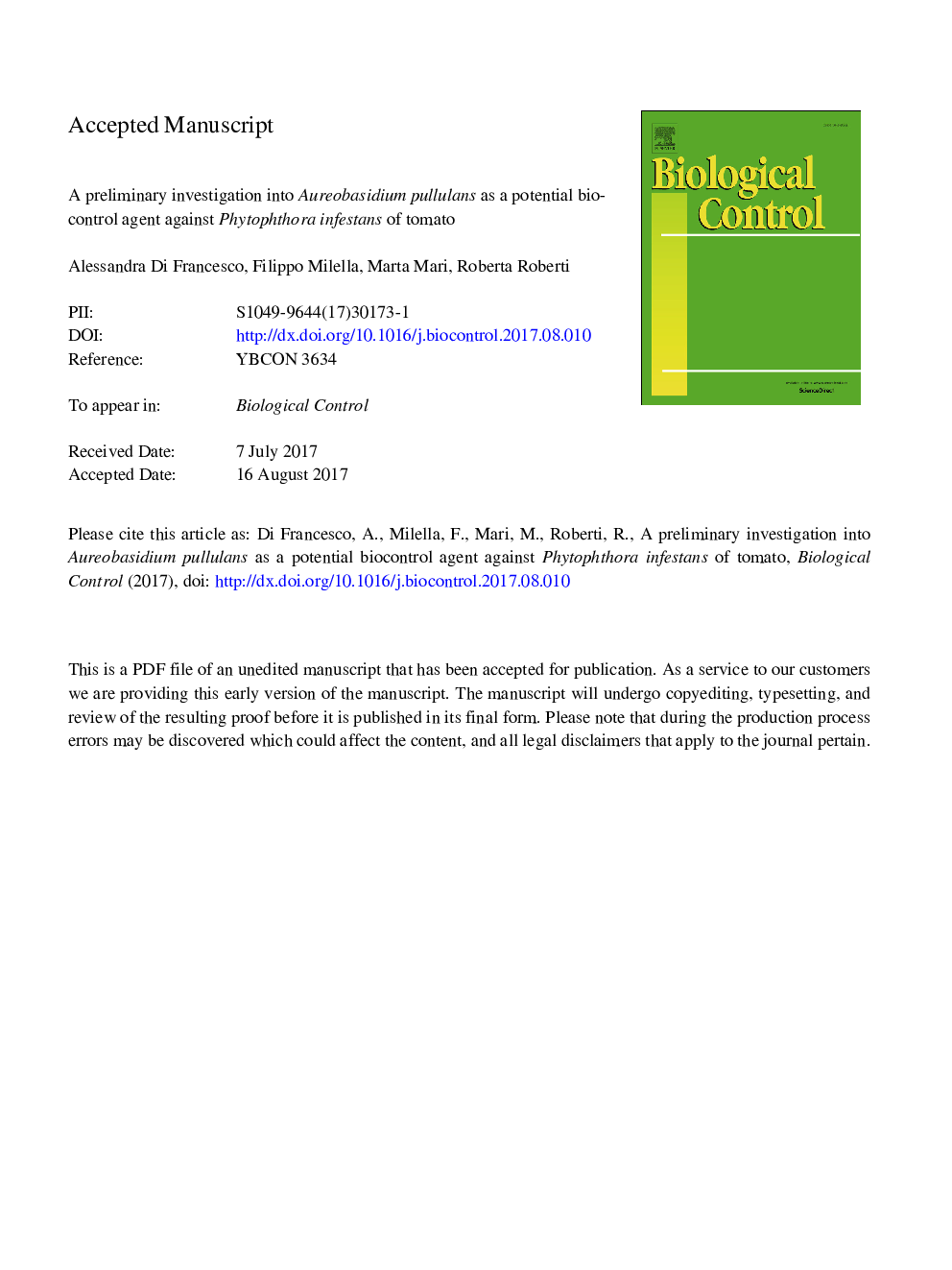| Article ID | Journal | Published Year | Pages | File Type |
|---|---|---|---|---|
| 5760736 | Biological Control | 2017 | 22 Pages |
Abstract
Two biological control agents (BCAs), Aureobasidium pullulans L1 and L8 strains, were evaluated for their efficacy against Phytophthora infestans, the casual agent of tomato late blight. Yeast strains were applied (108 CFU/mL) on tomato plants, grown under greenhouse conditions, 24 h before or 16 h after inoculation with P. infestans (1 Ã 104 sporangia/mL). The BCAs applied 24 h before the pathogen inoculation were significantly more effective (43.9%) than those applied after pathogen inoculation. L8 reduced AUDPC more (60%) than L1 (37%), while both strains reduced the disease in a similar way (average 32.2%) in the post-inoculation treatment. Dynamic population assay revealed that L1 and L8 were able to survive and colonize the tomato leaf surface during the ten days of experiments. In vitro experiments showed that both strains enhanced plant defence response by increasing leaf β-1,3-glucanase activity (>30% than the control). BCAs also produced bioactive volatile and non-volatile metabolites able to inhibit pathogen colony growth and to cause morphological alterations of hyphae. Overall, volatile metabolites were more effective than non-volatiles in reducing pathogen growth. In addition, 2-phenyl, 1-butanol-3-methyl, 1-butanol-2-methyl and 1-propanol-2-methyl synthetic volatile compounds produced by both strains showed EC50 values for pathogen mycelial growth of 3.9 µL Lâ1 on average. This study showed that L1 and L8 strains could be considered part of a control strategy against P. infestans on tomato.
Keywords
Related Topics
Life Sciences
Agricultural and Biological Sciences
Agronomy and Crop Science
Authors
Alessandra Di Francesco, Filippo Milella, Marta Mari, Roberta Roberti,
